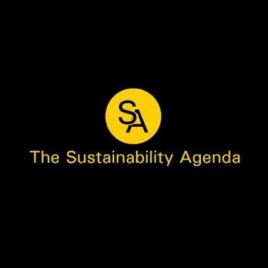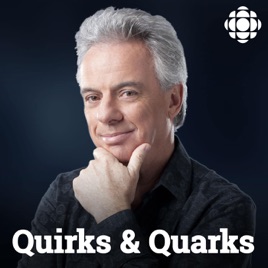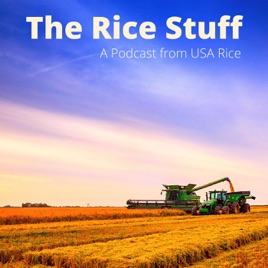
Advertise on podcast: The Sustainability Agenda
Rating
4.5 from
Country
This podcast has
188 episodes
Language
Publisher
Explicit
No
Date created
2016/08/24
Average duration
59 min.
Release period
18 days
Description
The Sustainability Agenda is a weekly podcast exploring today’s biggest sustainability questions. Leading sustainability thinkers offer their views on the biggest sustainability challenges, share the latest thinking, identify what’s working --and what needs to change -- and think about the future of sustainability.
Social media
Check The Sustainability Agenda social media presence
Podcast episodes
Check latest episodes from The Sustainability Agenda podcast
Episode 188: Interview with Bhutanese lama Dzongsar Khyentse Rinpoche...offering a distinctive Buddhist outlook on current environmental crises.
2024/01/17
In this compelling interview, Dzongsar Khyentse Rinpoche, a revered Bhutanese lama and educator, offers a distinctive Buddhist outlook on the critical environmental crises we are currently facing. Rinpoche stresses the necessity of immediate action and illustrates how a Buddhist viewpoint can foster a deep comprehension of humanity’s interconnectedness with the environment. He delves into essential Buddhist metaphysical concepts—such as interdependence and the illusion of self—demonstrating how an understanding of these principles can aid in addressing our environmental predicaments. Rinpoche highlights the significance of reconnecting with ancient wisdom and the vital role of educating the younger generation about environmental stewardship.
Dzongsar Jamyang Khyentse Rinpoche, also known as Khyentse Norbu and Thubten Chökyi Gyamtso, is a widely respected Buddhist scholar and teacher from the Rimé (nonsectarian) lineage of Tibetan Buddhism. Also an acclaimed filmmaker and author of several books, Rinpoche is known for his modern, progressive, and sometimes provocative approach to teaching the dharma.
Rinpoche is responsible for the care and education of approximately 3,000 monks at several monastic institutions in Asia: Dzongsar Monastery and Dzongsar College in Derge, Sichuan, China; Dzongsar Khyentse Chökyi Lodrö Institute in Chauntra, Himachal Pradesh, India; and the Chökyi Gyatso Institute for Buddhist Studies in Dewathang, Bhutan.
In addition to the monastic community, Rinpoche guides hundreds of thousands of students in about 40 countries around the world. As an author, filmmaker, and benefactor, his many creative and philanthropic endeavors extend beyond traditional efforts through an ever-growing mandala of activities.
more
Episode 187: Interview with indigenous Australian academic and human and earth rights activist, Dr. Anne Poelina.
2024/01/02
In this episode, we speak to Dr. Anne Poelina an indigenous Australian academic and human and earth rights activist. Dr. Poelina explains her role as a “Yimardoowarra marnin,” which, translated from the Nyikina language, means “a woman who belongs to the Martuwarra River,” in Western Australia. Dr. Poelina discusses what she calls “first law,” the Aboriginal peoples’ customary law covering the rules for living in coexistence with nature, the rules of conduct that hold together and bond a civil society, the principles of an ethics of care. She talks about the indigenous cultural approach to collaborative water governance underlying the legal work that she is spearheading to make sure that the development of the Fitzroy River does not lead to the mistakes made in the development of the Murray-Darling river.Please see the Matuwarra Fitzroy River Council website to learn more about the Council and its work.Dr. Anne Poelina is a Nyikina Warrwa (Indigenous Australian) woman who belongs to the Mardoowarra, the lower Fitzroy River in the Kimberley region of Western Australia. She is an active Indigenous community leader, human and earth rights advocate, filmmaker and a respected academic researcher. Anne is currently an Adjunct Senior Research Fellow with Notre Dame University and a Research Fellow with Northern Australia Institute Charles Darwin University. She is also Managing Director of Madjulla Incorporated, an indigenous not-for-profit non-government community development organisation working with remote Aboriginal communities.The post Episode 100: Interview with Anne Poelina, Indigenous Australian and Nyikina Traditional Custodian appeared first on The Sustainability Agenda. This episode was first aired in August 2020.
more
Episode 186: Interview with Steve Trent, founder of the Environmental Justice Foundation
2023/12/11
In this revealing interview, Steve Trent, the founder of the Environmental Justice Foundation, delves into the Foundation’s pivotal work at the intersection of environmental security and human rights. He underscores the Foundation’s vital role in actively probing and witnessing environmental abuses, and the importance of presenting evidence and information to decision-makers in corporate boardrooms and governments worldwide.
Steve highlights the importance of empowering local communities and giving a voice to the marginalized--at the core of the Environmental Justice Foundation’s work --and their potential to drive significant change. And he discusses ithe Foundation’s ongoing campaign against deep-sea mining, a practice which it vehemently opposes. He compares its destructive nature to the clear-cutting of forests and advocates for increased transparency in decision-making about deep-sea mining, which is too often conducted behind closed doors.
Steve also discusses the Environmental Justice Foundation’s distinct approach to funding, emphasizing their commitment to self-reliance, independence, and transparency, with a focus on delivering tangible benefits.
Despite facing numerous challenges, Steve maintains an optimistic outlook for the future, drawing inspiration from the engagement and perspective of younger generations. And he encourages listeners to get involved, educate themselves, and support organizations that align with their values.
An eloquent call for environmental justice, transparency, and empowerment of local communities: this interview is essential listening for anyone interested in environmental justice and the long-term wellbeing of our planet.
Steve Trent is the CEO and founder of the Environmental Justice Foundation, a non-governmental organisation that works to secure a world where natural habitats and environments can sustain, and be sustained by, the communities that depend upon them for their basic needs and livelihoods.
Steve has more than 30 years' experience in environmental and human rights, campaigning for the protection of natural resources, the environment and human rights, taking action to bring about tangible positive change and implementing solutions to ensure genuine long-term sustainability. He has conducted investigations and trained environmental and human rights advocates in more than 25 countries and managed media campaigns in over 15 countries around the world.
Steve also cofounded WildAid, serving as president for over a decade and leading WildAid’s work in China and India.
more
Episode 185: Interview with leading French anthropologist Professor Philippe Descola on man's relationship with nature.
2023/11/27
Fascinating interview with leading French anthropologist Professor Philippe Descola, first posted in 2021, exploring man's relationship with nature. Professor Descola argues that we can, and must today, learn from other ways of connecting to nature--and move beyond the strict separation between the cultural worlds of human beings and the non-human things of nature.
more
Episode 184: Interview with Dr. Matthew J. Bell, EY Global Climate Change and Sustainability Services Leader
2023/11/20
Matthew is Global Climate Change and Sustainability Services Leader Leader at EY, the professional services company. He has a background in government climate and energy policy, and science. Matt has more than 20 years' experience supporting organizational transformation toward a more sustainable path. Working across the public and private sectors, Matt leads teams of specialists across environment, health and safety; sustainability strategy and advice; non-financial reporting and assurance; impact investment and outcome measurement; human rights; and climate change and energy.
more
Episode 183 Interview with Professor Katharina Pistor on How the Law Creates Wealth and Inequality. First aired on December 13th, 2021.
2023/10/22
Katharina Pistor, Professor of Comparative Law and director of the Center on Global Legal Transformation at Columbia Law School, discusses her most recent book The Code of Capital: How the Law Creates Wealth and Inequality. In this fascinating discussion, she highlights the various ways that debt, complex financial products, and other assets are selectively coded to protect and reproduce private wealth—and the malleability of the legal system, that can be redesigned, and repurposed--by well paid lawyers. Katharina discusses the recent trend to create environmental financial assets-and highlights what she sees as a crucial, perennial, question: who will bear any financial losses (associated with climate change investments). Katharina also shares some ideas on we might create a financial system that would be more socially, environmentally and financially equitable.
Katharina Pistor is the Edwin B. Parker Professor of Comparative Law and director of the Center on Global Legal Transformation at Columbia Law School. A leading scholar and writer on corporate governance, money and finance, property rights, and comparative law and legal institutions, Pistor’s most recent book, The Code of Capital: How the Law Creates Wealth and Inequality, examines how assets such as land, private debt, business organizations, or knowledge are transformed into capital through contract law, property rights, collateral law, and trust, corporate, and bankruptcy law. The Code of Capital was named one of the best books of 2019 by the Financial Times and Business Insider.
more
Episode 182: Journalist Vincent Bevins discusses his new book If We Burn: The Mass Protest Decade and the Missing Revolution
2023/10/03
In this revealing interview, journalist Vincent Bevins discussed his newly released book If We Burn: The Mass Protest Decade and the Missing Revolution, based on his research of a wide range of social movements between 2010 and 2020. Beginning with an analysis of the "Yellow Vest" protests in France, the discussion focusses on the challenges, nuances, and lessons of building broad social movements—with particular lessons for the climate movement. Vincent highlights the transformative power of social media but also its limitations in fostering genuine, long-lasting change. He underscores the drawbacks of decentralized movements and ambiguous goals identifying potential pitfalls. Drawing from his on-the-ground experiences in Brazil, Vincent emphasizes the significance of recognizing the worldwide repercussions of local endeavors. He also stresses the need for activists to work with governments and state institutions rather than rejecting them, emphasizing that radical change does not necessarily always mean being anti-government.
Vincent Bevins is an award-winning journalist and correspondent. He covered Southeast Asia for the Washington Post, reporting from across the entire region and also served as the Brazil correspondent for the Los Angeles Times, also covering nearby parts of South America. He has written for are the New York Times, The Atlantic, The Economist, The Guardian, Foreign Policy, the New York Review of Books, the New Republic, and more. His previous book is the Jakarta Method: Washington’s Anticommunist Crusade And The Mass Murder Program That Shaped Our World.
more
Episode 181: Environmental degradation, capitalism, and imperialism with Jason W Moore
2023/09/23
In this fascinating, hard hitting interview, Jason Moore talks about the intertwining relations between environmental degradation, capitalism, imperialism, and climate change-stressing the need to recognize the role of imperialis--and counter-insurgency across the past century to advance climate justice. He argues it is naïve to believe that eco-socialism can be achieved through parliamentary majority alone and underscores the importance of understanding a century of struggles between revolutionary and counter-revolutionary forces. Jason sees the present era as a moment of transition, signaling a break with American uni-polar hegemony, a period of political possibility and revolts, and calls for a more dialectical way of thinking to establish connections between fractured social movements. Finally, Jason talks about the exploitation of the Global South, labeling it as a new phase of green imperialism, and criticizes the neglect of imperialism’s role in discussions about environmental transitions.
Jason W. Moore is an environmental historian and historical geographer at BINGampton University, where he is professor of sociology and leads the World-Ecology Research Collective. He is author or editor, most recently, of Capitalism in the Web of Life , Anthropocene or Capitalocene? Nature, History, and the Crisis of Capitalism and, with Raj Patel, A History of the World in Seven Cheap Things. His books and essays on environmental history, capitalism, and social theory have been widely recognized, including the Alice Hamilton Prize of the American Society for Environmental History (2003), the Distinguished Scholarship Award of the Section on the Political Economy of the World-System (American Sociological Association, 2002 for articles, and 2015 for Web of Life), and the Byres and Bernstein Prize in Agrarian Change (2011).
more
Episode 180 Net Zero: Beyond the hype. Professor Angel Hsu on the reality of Net Zero Pledges
2023/08/29
Fascinating discussion with Professor Angel Hsu on the significance and challenges surrounding the Net Zero emissions goals. While companies often tout their commitment to Net Zero, a recent report suggests that many are not taking credible steps towards this target. Angel argues that the Net Zero space is filled with confusion and misinformation, exacerbated by sophisticated company communications that are often misleading. Angel discusses how the Net Zero Tracker helps to provide transparent data and clarify what constitutes credible Net Zero actions. Towards the end of the interview, Angel discusses the potential of AI highlighting the potential for AI to both assist in and complicate the understanding of Net Zero commitments. Finally, Angel highlights the potential business benefits for companies genuinely committed to Net Zero, allowing companies to meet their environmental responsibilities and also generate business growth.
Angel Hsu is an American climatologist and environmental scientist. She is the founder and head of the Data-Driven EnviroLab at the University of North Carolina at Chapel Hill. She holds a PhD and is an Assistant Professor of Public Policy and Environment, Energy and Ecology at UNC-Chapel Hill. Her research interests include data-driven environmental policy, urbanization, climate change, and development, with a focus on China.
more
Episode 179: Jeremy Lent talks about finding our place in the universe by integrating science and traditional wisdom
2023/08/16
In this wide-ranging interview, first published in 2021, Jeremy Lent discusses his fascinating new book Web of Meaning which combines findings in cognitive science, systems theory and traditional Chinese and Buddhist thought, to develop a framework that integrates both science and meaning in a coherent whole. Jeremy discusses what he sees as an essential problem at the heart of our current worldview: how man is separated from nature which is seen purely as a resource. He highlights a very different perspective, common to many indigenous peoples, how we are interrelated, not just all humans related to each other, but seeing all of the living earth around us all of life as being our relations. Jeremy also shares his long standing criticisms on the structure of the modern corporation and its role in society, in light of the recent Shell climate litigation, and the election of new directors to the board of Exxon, instigated by a small activist investor-which has been called the oil industry’s “Black Wednesday.”
Jeremy is an award winning author and founder of the nonprofit Liology Institute, dedicated to fostering a worldview that could enable humanity to thrive sustainably on the earth. His writings investigate the underlying causes and the patterns of thought that have led our civilization to its current sustainability crisis. The Patterning Instinct is a cultural history of humanity’s search for meaning, traces the deepest dark of foundations of our modern worldview. His most recent book is Web of Meaning: integrating science and traditional wisdom to find our place in the universe.He is the founder of the Deep Transformation Network, a global community exploring pathways to an ecological civilization, and the nonprofit Liology Institute, dedicated to fostering an integrated worldview that could enable humanity to thrive sustainably on the Earth.
more
Episode 178: Discussion with Paula DiPerna of the pros and cons of a market based approach to our environmental problems.
2023/07/23
In this in-depth, and spirited interview, we discuss the pros and cons of a market based approach to our environmental problems-and climate change in particular. Paula DiPerna discusses her new book, Pricing the Priceless: The Financial Transformation to Value the Planet, Solve the Climate Crisis, and Protect Our Most Precious Assets, arguing for a market-based approach to dealing with our environmental challenges, advocating for the integration of environmental considerations into financial and economic systems. DiPerna explores the concept of carbon markets, highlighting the European Union emissions trading scheme as an example of a functioning carbon market. She also discusses the idea of attributing a financial value to nature, suggesting that the work nature does should be financially recognized. DiPerna also argues for the necessity of new kinds of authorities to manage these complex issues, suggesting that global regulation is needed to ensure the preservation of our natural resources. Recognising the massive scale of the environmental challenges we are facing, DiPerna maintains an optimistic view, expressing her belief in the human ability to appreciate beauty and understand the mysteries of life.
Paula DiPerna is Special Advisor to CDP North America, the international non-profit that helps companies, cities, states, regions and public authorities disclose their environmental impact. Paula is a leader in strategic global environmental and philanthropic policy, and served formerly as President of the international division of the Chicago Climate Exchange (CCX). Prior to these positions, she served as writer and Vice President for International Affairs for the Cousteau Society, whose President was explorer and filmmaker, Jacques-Yves Cousteau. DiPerna has also served as a consultant to numerous national and international organizations, such as the World Bank and LEAD-International, and was awarded an Eisenhower Fellowship. Paula has published numerous books, her latest is Pricing the Priceless: The Financial Transformation to Value the Planet, Solve the Climate Crisis, and Protect Our Most Precious Assets.
more
Episode 177 Author Ned Beauman talks about his satirical extinction novel, Venemous Lumpsucker. First aired in September 2022.
2023/07/11
In this interview, British novelist, journalist and screenwriter Ned Beauman discusses his latest novel Venomous Lumpsucker-a brilliant, darkly satirical and terrifying novel about endlings (the last of a species), the manipulation of extinction credit markets... the elusive Hermit Kingdom: described by The Times Literary Supplement as “a tale of capitalism, penance and species extinction.” Fascinating, broad ranging discussion on extinction, literary fiction and the climate crisis, environmental satire, and the commodification of nature. First aired in September 2022.
Ned Beauman is a British novelist, journalist and screenwriter, the author of five novels; he was selected as one of the Best of Young British Novelists by Granta magazine in 2013. His latest is Venomous Lumpsucker, “a darkly funny and incisive zoological thriller about environmental devastation and one very ugly little fish.”
more
Podcast reviews
Read The Sustainability Agenda podcast reviews
Andieo1997
2023/11/07
⭐️ ⭐️ ⭐️ ⭐️ ⭐️
The Sustainability Agenda is an enlightening and engaging podcast that brilliantly tackles the complexities of sustainability! Each episode is a treas...
more
malfoxley
2021/08/09
Great show!
Fergal, host of the Sustainability Agenda podcast, highlights all aspects of sustainability and more in this can’t miss podcast! The host and expert ...
more
nuppal07171987
2023/07/24
Latest episode is terrible
Paula talks in circles. She doesn’t seem smart
obacker19
2019/10/16
The podcast we need! 🙏
These conversations are inspiring and energizing! Fergal does an incredible job of bringing on guests that are both knowledgeable about the critical s...
more
Devotheclown
2018/03/14
Good content with annoying sound issue
I enjoy the content of this podcast but hearing heavy breathing is too distracting and just annoying.
Podcast sponsorship advertising
Start advertising on The Sustainability Agenda & sponsor relevant audience podcasts
You may also like these earth sciences Podcasts

5
13
63
Minds Behind Maps
Maxime Lenormand

5
41
24
Under Our Feet
Rudy Molinek

4.4
8
16
PCPG's A Poorly Sorted but Well Rounded Series
Pennsylvania Council of Professional Geologists

4.9
219
181
Eat For The Planet with Nil Zacharias
Eat For The Planet

4.8
4
11
The Biochar Podcast
ANZBIG

5
6
40
碳笑风生
Shangwei, MInghao

5
55
95
Bionic Planet: Reversing Climate Change by Restoring Nature
Steve Zwick

4.5
31
26
Quirks and Quarks
CBC

5
22
84
The Rice Stuff
USA Rice

5
5
14
The Backpacker's Guide To Prehistory
David Mountain



